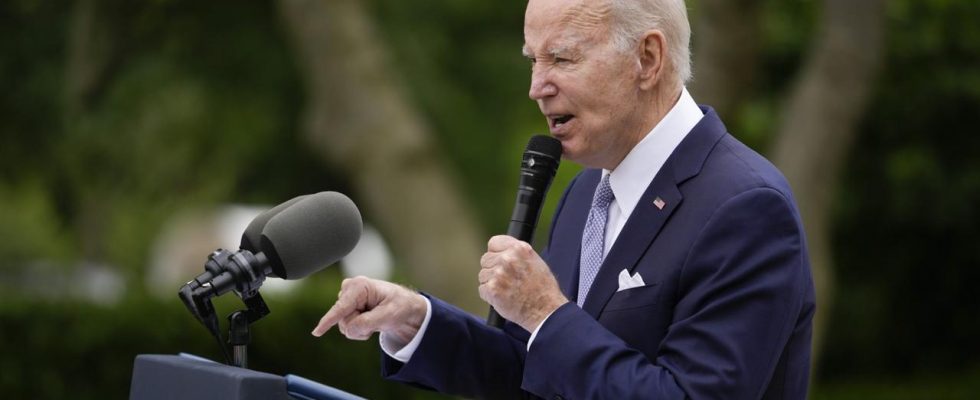After the emergency sale of the First Republic Bank, President Biden is trying to calm things down: The banking system in the United States is safe. The major US bank JP Morgan Chase had taken over the ailing regional bank.
After the takeover of the struggling US regional bank First Republic by the major bank JP Morgan Chase, US President Joe Biden is again trying to allay concerns about further upheavals in the banking system. Biden hailed steps taken by the FDIC, which include placing the institution in receivership and selling key operations to JP Morgan.
“These measures ensure that the banking system is safe and sound,” said the US President. Taxpayers would not be burdened by the bailout. Biden reiterated his calls for stricter oversight and regulation of both big banks and regional banks. Biden made a similar statement in mid-March after the collapse of Silicon Valley Bank.
The First Republic is the third US bank in two months to face collapse due to the massive withdrawal of customer deposits. Before the First Republic, the ripcords were pulled at Silicon Valley Bank and Signature Bank in March after customers withdrew billions of dollars there too. This had fueled fears of a new banking crisis, especially since the major Swiss institute Crédit Suisse also stumbled dramatically in Europe and is now being taken over by its domestic competitor UBS in a multi-billion euro rescue operation.
Mainly wealthy customers with large savings in First Republic
Over the weekend, the supervisory authorities had tried to find a solution for the future of the ailing institute before the US stock exchanges opened on Monday. “Our government has called on us and others to take action, and we have done so,” said JP Morgan Chase CEO Jamie Dimon. The bank’s 84 branches in eight US states opened today as branches of JP Morgan Chase.
At the end of last year, the US Federal Reserve ranked the institute 14th among the largest US commercial banks. But the San Francisco-based First Republic has struggled since the collapses of Silicon Valley Bank and Signature Bank in early March. Until then, the industry had envied the First Republic’s business with mostly wealthy customers who rarely defaulted on their loans. The bank made much of its money by lending cheaply to wealthy individuals, which reportedly included Meta CEO Mark Zuckerberg.
But the vast majority of deposits — as with Silicon Valley Bank and Signature Bank — were uninsured because they were above the $250,000 limit set by the FDIC. That worried analysts and investors because the latter might not get all their money back if the First Republic went bankrupt.
Bailout of the big banks – stocks at record lows
These fears were reflected in the bank’s latest quarterly figures. Investors said they withdrew more than $100 billion from the bank during the April crisis. The institution was only able to stop the development because a group of large banks stepped in to bail it out with $30 billion in uninsured deposits.
The First Republic then looked for a way to clean up. The bank wanted to sell unprofitable assets, including the low-interest mortgages it provided to wealthy customers. It also announced that it would lay off up to a quarter of its workforce, which numbered around 7,200 at the end of 2022.
However, investors remained skeptical. Bank executives have not answered questions from investors or analysts since the earnings release, and First Republic stock continued to fall. The bank’s shares were temporarily suspended from trading on Friday.

